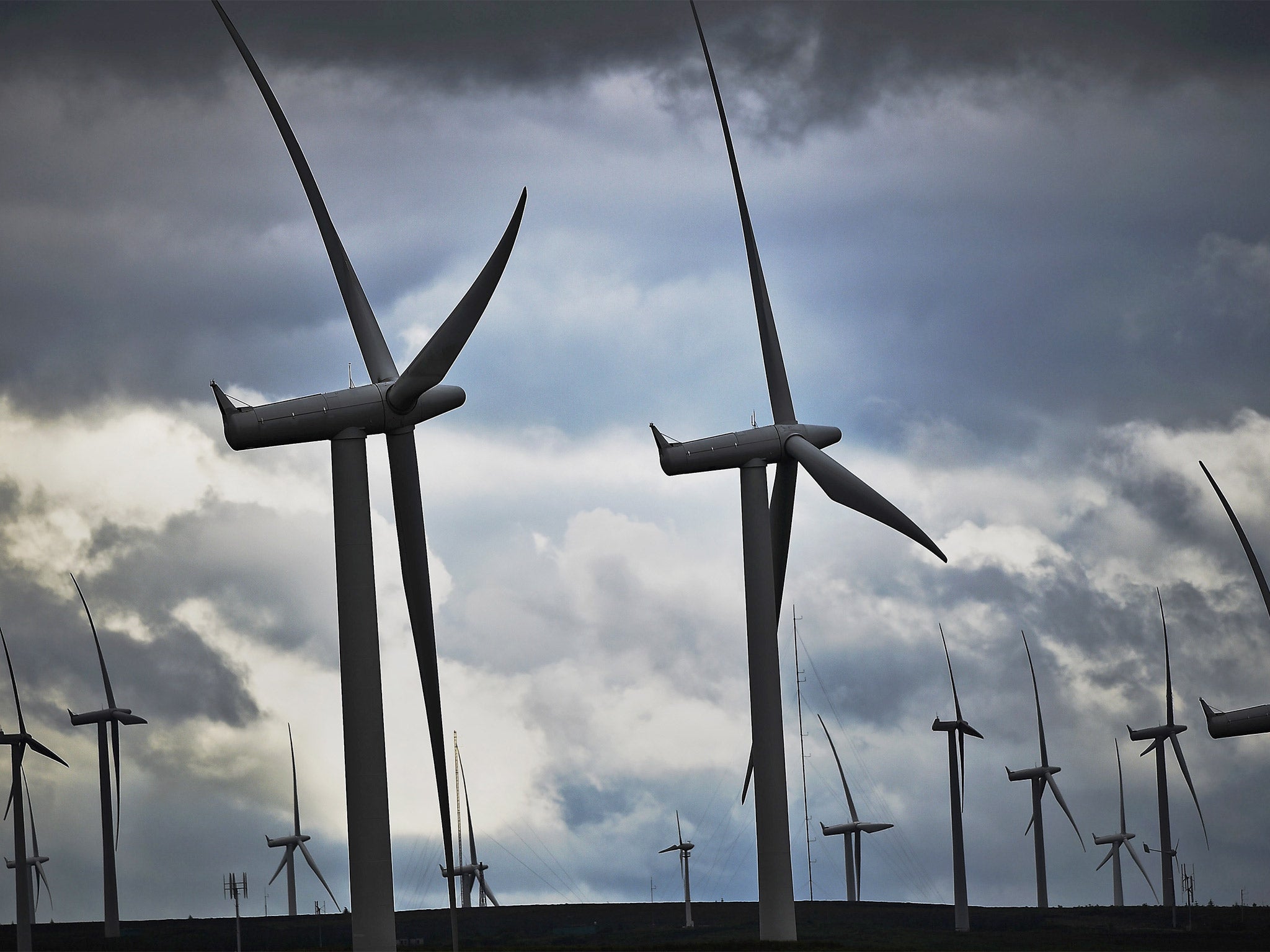Gone with the wind: The case for restoring renewable energy subsidies

Britain is, according to most estimates, the windiest country in Europe. Gales sweep across the north, south-westerlies toss the Welsh moors and, all in all, 2015 was the most blustery year for the past two decades.
So the news that onshore wind energy is now the cheapest on offer to UK consumers should be an unalloyed cause for celebration. As it is, dark clouds hang heavy. The price of a mWh of wind energy generated onshore has fallen to $85 (£55), according to Bloomberg, which puts it some way below coal and gas (at $115 and $114 respectively). Evidently, consumers will be wanting more of it in the near future, particularly since the price of coal and gas is only set to rise.
Yet Britain’s onshore wind industry has been blown off course by the Government, and a rise in capacity is not likely to match the rise in demand. In the Coalition years, power was shifted to local authorities to veto the construction of onshore wind farms, with the predictable result that fewer projects are getting off the ground. In some controversial cases, escalated to central government, the then Communities Secretary Eric Pickles saw the plans for new farms scrapped. A triumph for Nimbyism, a tragedy for the nation’s energy infrastructure.
Making matters worse, the Conservatives recently announced that subsidies for onshore wind farms would be cut a year earlier than planned – a decision that saw 250 proposed wind farms disappear. As the Confederation of British Industry – hardly a group of eco-warriors – pointed out, this will discourage investment at a crucial juncture for renenwables and harm Britain’s commitment to clean up its energy mix by 2020.
Some rural residents may thank the Conservatives for stymying onshore wind farms, and saving the views from their homes. But as winds rise, and prices fall, the rest of the country could be forgiven for feeling thunderous.
Join our commenting forum
Join thought-provoking conversations, follow other Independent readers and see their replies
Comments
Bookmark popover
Removed from bookmarks